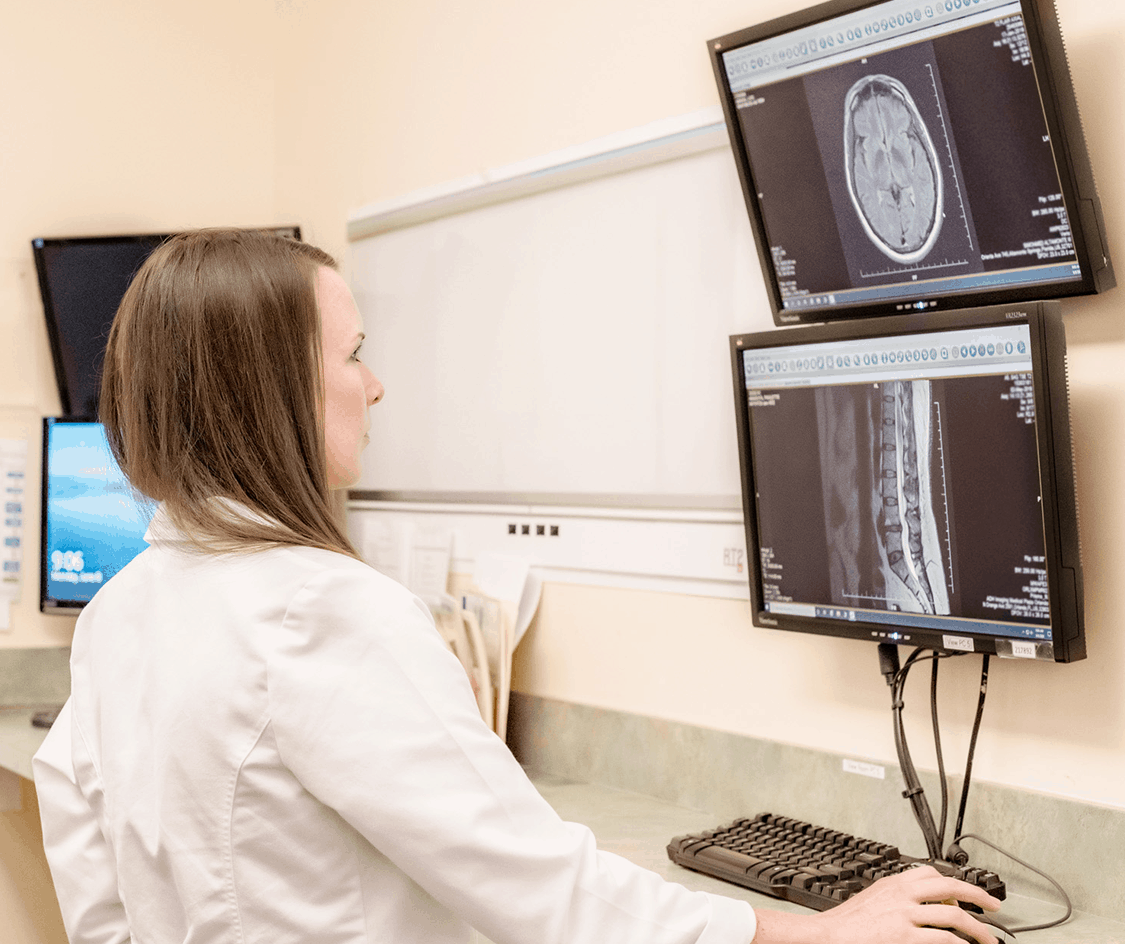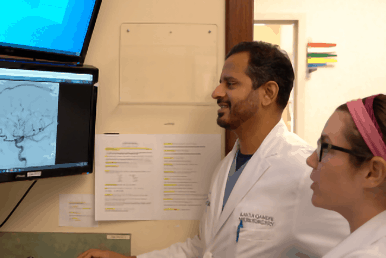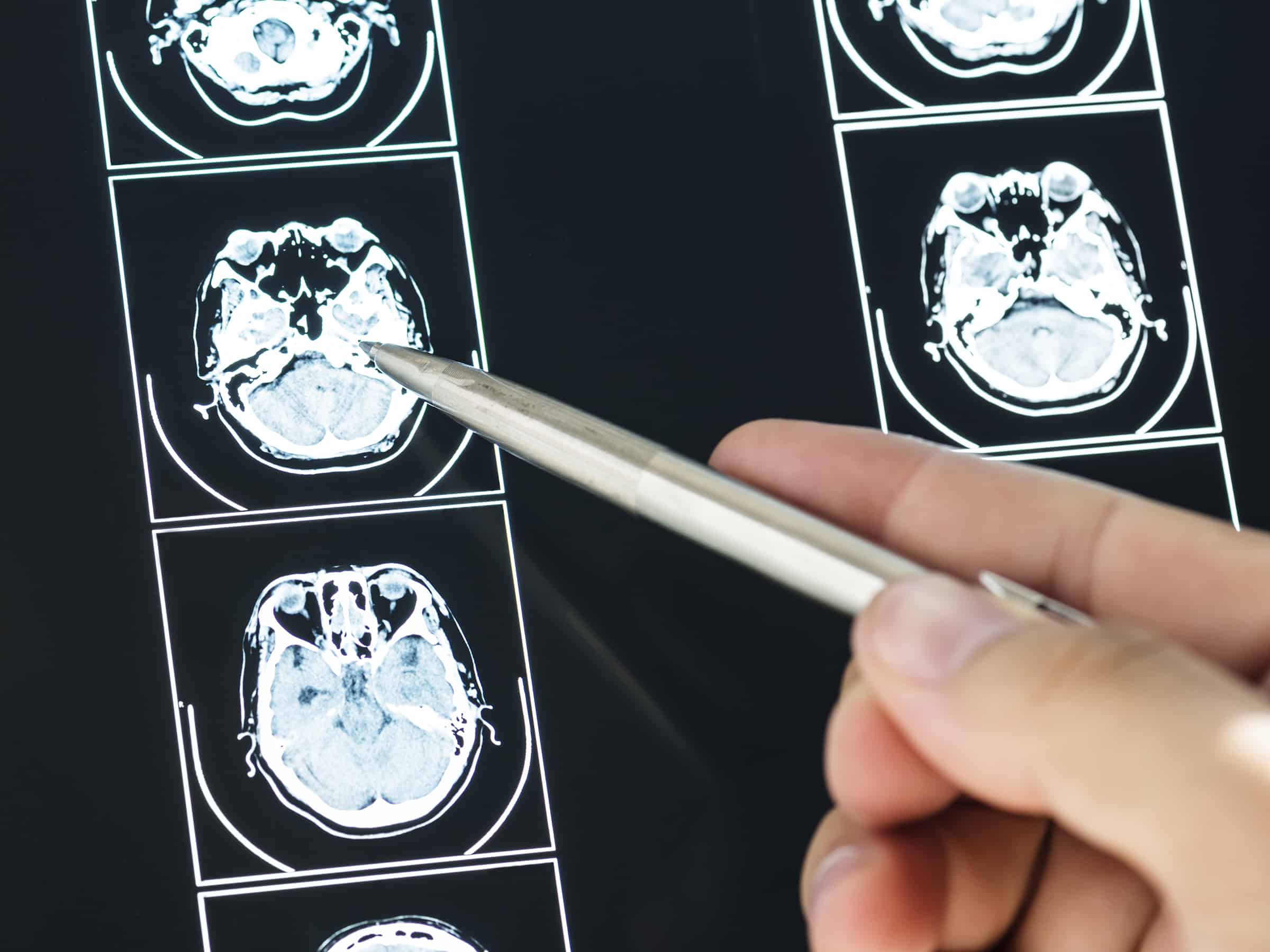- What does a vascular neurosurgeon do?
- What diseases do vascular surgeons treat?
- How can a vascular neurosurgeon help patients?
- What are the signs and symptoms of neurovascular disease?
Vascular neurosurgeons are the high-tech specialists of the surgical profession. These healthcare experts use top of the line tools to treat damaged or malformed blood vessels that can cause mild to severe disruption of the central nervous system and brain.
Ravi H. Gandhi, M.D., board-certified neurosurgeon at Orlando Neurosurgery says, “Vascular neurosurgery is a field of neurosurgery that refers to the blood vessels of the brain and spine.” He is just one of the caring, skilled professionals making up this complex and life-saving healthcare subspecialty.
What Does a Vascular Neurosurgeon Do?
 The vascular neurosurgeon specializes in surgeries at the micro-level, treating and repairing malformed or injured blood vessels deep within the vital structures of the brain and spine. These neurosurgeons are highly specialized clinicians that work to keep the central nervous system functioning properly by treating the blood vessels that supply the spinal cord and brain with a rich oxygenated blood supply.
The vascular neurosurgeon specializes in surgeries at the micro-level, treating and repairing malformed or injured blood vessels deep within the vital structures of the brain and spine. These neurosurgeons are highly specialized clinicians that work to keep the central nervous system functioning properly by treating the blood vessels that supply the spinal cord and brain with a rich oxygenated blood supply.
Blood and oxygen nourish the body, including the brain and spinal cord. Your blood vessels are like the highway that carries nutrient rich blood throughout the body. Neurovascular disorders occur when restricted blood flow blocks these highways, causing serious complications up to and including death.
The incredibly delicate work to repair blood vessels requires a high level of expertise by a skilled vascular neurosurgeon. When problems with the blood vessels and the spine occur, the possibility for complications is potentially very high. The brain and spine are incredibly delicate, filled with a network of blood vessels that, when blocked or damaged, can cause massive problems with the entire body. One problem with blood flow or the blood vessels can impair brain and nervous system function forever, causing disability and potentially life-threatening illness.
Dr. Gandhi says, “The brain is very much dependent on blood flow. So, anything that disrupts the blood flow to the brain, such as plaque build up in the carotid arteries of the neck puts patients at risk of stroke.”
What Diseases do Vascular Neurosurgeons Treat?
 Vascular surgeons treat neurovascular disorders, which are also called cerebrovascular conditions. These illnesses occur within the body’s blood vessels. Three of the most common disorders treated by Dr. Gandhi and his team include:
Vascular surgeons treat neurovascular disorders, which are also called cerebrovascular conditions. These illnesses occur within the body’s blood vessels. Three of the most common disorders treated by Dr. Gandhi and his team include:
- Arteriovenous fistulas (AV fistula) are an abnormal connection between an artery and a vein that disrupts blood flow
- Arteriovenous malformations (AVMs) are an abnormal tangle of blood vessels within the brain that can prevent normal blood flow
- Cerebral aneurysms create a balloon-like bulge in the artery wall within the brain
All of these disorders could be life-threatening or benign, depending on their severity. However, typically, anytime a disruption with your blood vessels or blood flow occurs, it means parts of your body can’t get the nutrients and oxygen you need. This can quickly escalate into a life-threatening problem.
Dr. Gandhi says, ““Here at Orlando Neurosurgery, we use technology to help evaluate these blood vessels and to determine which ones need to be treated.”
In fact, an AVM can be quite difficult to diagnose. Many people are just born with these conditions and an AVM can take decades for it to grow large enough to cause a problem. However, one doctor described what can happen deep within the brain or spine when an AVM needs treatment, “AVMs are freaks of nature, explosions of hemodynamic energy and red fury, with dilated arteries converging from all directions like angry snakes, engorged veins twisting and throbbing.” This colorful description shares the complex environment that Dr. Gandhi works within to cure his patients.
How Can a Vascular Neurosurgeon Help Patients?

A vascular neurosurgeon like Dr. Gandhi saves lives. A vascular neurosurgeon can help with medication, surgery, microsurgical clipping, which places a metal clip across an aneurysm or AVM to stop bleeding—and more. These are just a few of the current treatments available.
The decision to clinically intervene in these cases rests upon a number of tests that include diagnostic imaging to look at the shape, size, and location of the problem. Dr. Gandhi says, “We have to go through a series of algorithms to decide if they need to be treated. That decision requires us to know a lot of specifics about the AVM, the arteriovenous fistulas or the aneurysms.”
Technology plays a huge role in the vascular neurosurgery profession. Dr. Gandhi says, “Oftentimes we use a microscope and very small sutures or clips to treat these abnormalities of the brain and spine. When we do open surgical procedures, our goal is to preserve the normal blood vessels and remove whatever is abnormal, whether it is an aneurysm, an AVM, or an AV fistula.”
What Are the Signs and Symptoms of Neurovascular Disease?
Patients can experience the sudden onset of serious symptoms such as:
- Vision problems such as the loss of vision in one or both eyes
- Severe and sudden headaches with no known cause
- Balance and coordination problems
- Seizures or fainting
- Motor problems including trouble walking or grasping something with your hands.
- One-sided muscle weakness, numbness, or paralysis
- Difficulty speaking or understanding what people are saying
- Behavioral or personality changes
- Nausea and vomiting unrelated to other illness
- Mini-strokes, known as transient ischemic attacks (TIAs)
Even if these symptoms are mild or are temporary, it’s important to call your doctor immediately.
Sign Up for Our Newsletter
Get the latest news and updates from Orlando Neurosurgery delivered straight to your inbox.


